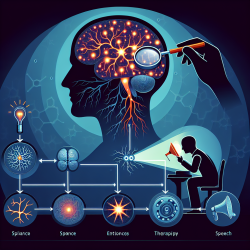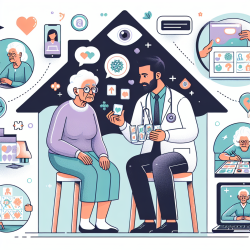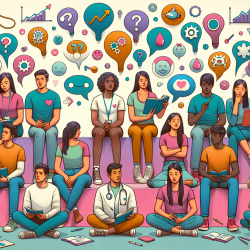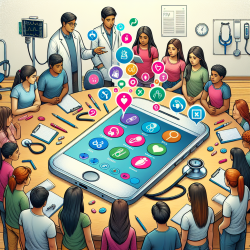Introduction
The intricate relationship between human cerebral evolution and neurodegenerative disorders such as Amyotrophic Lateral Sclerosis (ALS) offers a fascinating avenue for enhancing practitioner skills in speech and language therapy. The research article titled "Human cerebral evolution and the clinical syndrome of amyotrophic lateral sclerosis" provides crucial insights that can aid practitioners in understanding the complexities of ALS and its implications on speech therapy.
Understanding ALS Through Evolutionary Perspectives
ALS, a progressive neurodegenerative disorder, is characterized by the degeneration of motor neurons, leading to muscle weakness and atrophy. The research underscores the evolutionary development of the human brain, highlighting how certain cerebral structures, which evolved relatively recently, are more vulnerable to neurodegenerative processes.
Key findings from the study suggest that ALS predominantly affects cerebral structures involved in complex motor and social skills, such as speech and hand dexterity. These functions are highly developed in humans and are supported by intricate neural networks that have evolved over time. Understanding these evolutionary aspects can help practitioners tailor their therapeutic approaches to better address the unique challenges faced by ALS patients.
Implications for Speech Therapy
For speech-language pathologists, the research provides valuable insights into the cerebral networks involved in speech production and how they may be compromised in ALS. The study highlights the importance of considering cerebral dominance and lateralization in therapy. For instance, practitioners can focus on:
- Assessing the impact of cerebral dominance on speech and language abilities in ALS patients.
- Developing strategies that leverage the intact neural pathways to enhance communication skills.
- Incorporating exercises that target both hemispheres of the brain to promote neural plasticity and compensate for deficits.
Encouraging Further Research
While the study provides a robust framework for understanding ALS through the lens of cerebral evolution, it also opens avenues for further research. Practitioners are encouraged to explore:
- The genetic underpinnings of ALS and their implications for speech therapy.
- The role of environmental factors in modulating the progression of ALS-related speech impairments.
- Innovative therapeutic techniques that integrate findings from evolutionary biology to enhance treatment outcomes.
Conclusion
By integrating insights from cerebral evolution and ALS research, speech-language pathologists can refine their therapeutic approaches, ultimately leading to improved outcomes for patients. The study serves as a reminder of the importance of data-driven decision-making in clinical practice.
To read the original research paper, please follow this link: Human cerebral evolution and the clinical syndrome of amyotrophic lateral sclerosis.










